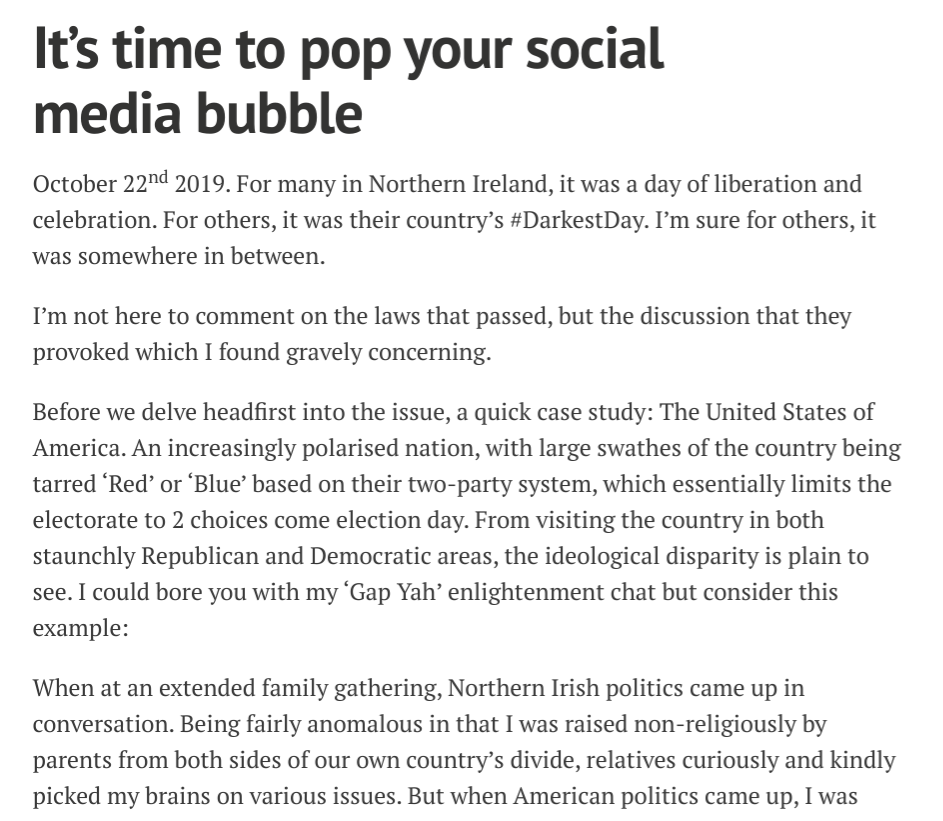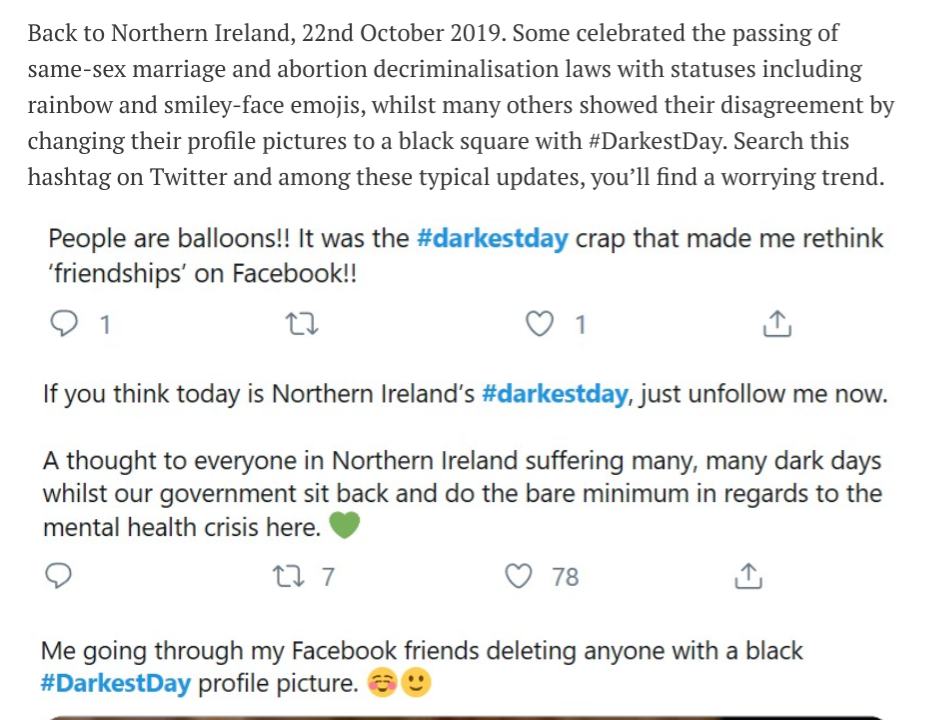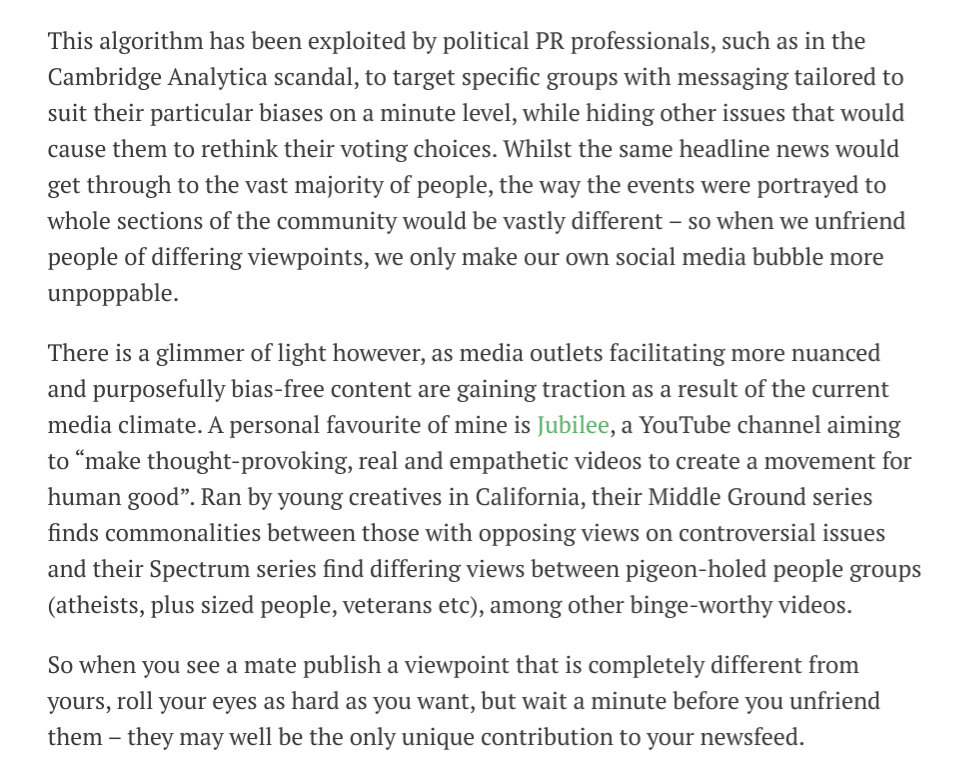How to write the perfect blog post
#prstudent advice

About the author
Richard Bailey Hon FCIPR is editor of PR Academy's PR Place Insights. He teaches and assesses undergraduate, postgraduate and professional students.

Some students are assessed on their blog posts. Others are keen to appear in the weekly #bestPRblogs roundup on this site. I’m often asked what I’m looking for, or what the marking criteria are, so this post attempts to answer these questions.
With this caveat: real life does not come with marking criteria; nor does it expend energy worrying about the difference between 60% and 70%. Instead, the dividing line is between success and failure, or rather between good-enough and not-quite-good-enough.
Don’t worry about perfection
One advantage of blogs over essays or exams is that they’re dynamic. They should be responsive to events as well as being informed by underlying trends and concepts. Public relations requires an awareness of news and popular culture and timing is everything as events are dynamic and agendas change. It’s better to publish an imperfect post in good time than to wait to complete your perfect post.
I’m being repetitive but here are my two rules for blog writing (or for what I’m looking for in blogs).
Think big, write small
You need a topic to write about. It’s unlikely to be a thing, but the thing may be used to illustrate your topic. So I’m unlikely to include a post about your favourite makeup, but you might use makeup to discuss consumer culture, the pressure to conform to a certain look, or the marketing of beauty products through influencers.
You now have a big topic to write about. ‘Write small’ means making it personal. It’s about your relationship with makeup and beauty, or your perspective on the beauty business or the power of influencers. This is the big difference between an essay and a blog post. The one is written objectively, based on evidence (such as academic research and scholarly judgement); the other must be subjective as it demands your view on a topic.
Be interesting. If you can’t be interesting, be useful.
‘Be interesting’ is the golden rule on social media. And, yes, I can accept that for a beauty blogger and her readers then makeup can be interesting. But you should be writing to reach people you don’t know, who may be of a different gender, in a different age bracket, and from a different culture.
Yet it’s a daunting challenge to be well informed and consistently interesting on a wide range of topics, and to deliver this through regular blog posts.
So the fall-back position is to be useful to your target readers. What do you now know about that might help others? As well as learning about a subject at university, you’ll have learnt about budgeting, cooking, managing your time to balance the various demands of study, socialising and paid work. Those everyday questions are the most interesting to someone who’s considering whether to go to university.
Example: a brilliant blog post
Let me ‘show, not tell’ by highlighting my admiration for an astonishingly sophisticated blog post published last week. It’s not from one of the leaders of #bestPRblogs; rather, this was just her second appearance this academic year. Georgia Galway is a final year undergraduate at Ulster University – though she has form as she describes herself as a ‘content strategist’ on her LinkedIn profile. I sought her permission to use this post as an example to others. So here’s what I admire in her post.
 The headline hints at the topic (‘think big’). The concept of the ‘filter bubble’ is now well established; the strength of social networks like Facebook is that we surround ourselves with ‘people like us’. I wonder where she’s going to take this?
The headline hints at the topic (‘think big’). The concept of the ‘filter bubble’ is now well established; the strength of social networks like Facebook is that we surround ourselves with ‘people like us’. I wonder where she’s going to take this?
The post starts with an external event: clearly a big and divisive moment in Northern Ireland. The author inserts herself in the first two paragraphs (it’s personal).
Then she zooms out again and contrasts Northern Ireland (a small province) with the United States (a large nation). Again it’s based on personal insight: ‘But when American politics came up, I was genuinely taken aback about how deeply divided a nation it is, even in comparison to Northern Ireland.’ Wow: the American Civil War happened in the early days of black and white photography; the Northern Ireland ‘troubles’ were a televised news event within living memory for many of us.
 Now like a film script she cuts back to Northern Ireland to show how the same-sex marriage legislation created two tribes, and how people would exclude those on the opposing side from their networks.
Now like a film script she cuts back to Northern Ireland to show how the same-sex marriage legislation created two tribes, and how people would exclude those on the opposing side from their networks.
She then asks the rhetorical question: ‘are we being polarised?’ It’s a rhetorical question because we know the answer.
She supports the question by drawing on examples from publishing (Jon Ronson’s book) and broadcasting (This Morning and Good Morning Britain).
 Then she takes us back to politics and shows how tribal polarisation can be exploited for electoral gain, citing Cambridge Analytica.
Then she takes us back to politics and shows how tribal polarisation can be exploited for electoral gain, citing Cambridge Analytica.
Finally, she hits us with her conclusion: we shouldn’t unfriend people for holding opposing views, but should instead welcome a diversity of opinion.
When you consider the divisiveness of the Brexit debate, you’ll see how challenging this advice is. When you consider the trend for no-platforming speakers with views that go against the opinion of the crowd (as recently happened to Amber Rudd at Oxford University), then you’ll see that Georgia is setting herself against a trend within her own generation. That’s bold as well as brilliant.
(And no mention from me of the nuts and bolts of spelling and grammar: they should be invisible, as they were in this post.)
So, is this the perfect blog post? Of course not, because we’re not looking for perfection and by claiming perfection we’d only be inviting pedants to find fault. But as a university assessor I’d be reaching close to the maximum in this case and would suggest 9/10 – subject to oversight by a second marker and the critical eye of an external examiner.
What’s the formula for the near-perfect blog post? There isn’t one, because if it became formulaic then it would no longer have the power to surprise and cut through. But there are techniques that can and should be adapted by others.
‘Very interesting piece, making me think’
Nor am I alone in picking out this post. Orlagh Shanks, our #prstudent #bestPRblogs winner from 2018 and 2019 – now living and working in New York but originally from Northern Ireland herself – spontaneously and independently shared this observation:
Very interesting piece, making me think I should pay more attention to American politics https://t.co/RXXDewytre
— orlagh claire (@orlaghshanksPR) March 13, 2020